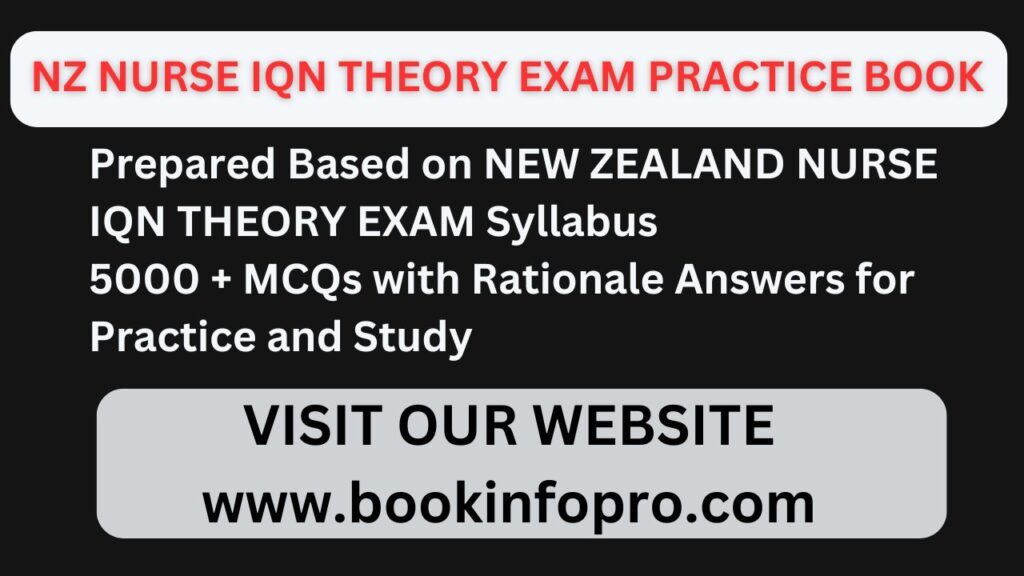NEW ZEALAND IQN EXAM QUESTION – Culturally Safe Care MCQs
Question 1: What is the concept of cultural competence in healthcare?
a) Understanding and respecting cultural differences
b) Ensuring that healthcare is available to everyone
c) Treating patients from all cultures the same way
d) Providing healthcare in different languages
Answer: a) Understanding and respecting cultural differences
Explanation: Cultural competence involves awareness, knowledge, and skills to understand and respect cultural differences in healthcare.
Question 2: Which of the following actions demonstrates cultural humility in nursing?
a) Assuming knowledge about a patient’s culture
b) Being open to learning from patients about their cultural perspectives
c) Correcting a patient’s cultural beliefs if they are medically incorrect
d) Relying on cultural stereotypes to guide care
Answer: b) Being open to learning from patients about their cultural perspectives
Explanation: Cultural humility involves a lifelong commitment to learning from others and valuing their perspectives.
Question 3: A nurse cares for a patient with strong religious beliefs. Which approach is most appropriate to ensure culturally safe care?
a) Ignoring the patient’s beliefs to focus on medical care
b) Respecting and integrating the patient’s religious practices into care
c) Suggesting that the patient’s beliefs may hinder recovery
d) Discouraging religious practices during hospitalization
Answer: b) Respecting and integrating the patient’s religious practices into care
Explanation: Integrating a patient’s religious practices into care respects their cultural beliefs and fosters culturally safe care.
Question 4: Which of the following is a key component of culturally safe care in nursing?
a) Avoiding discussions about cultural differences
b) Engaging with patients to understand their cultural needs
c) Recommending treatments that align with Western medical practices
d) Requiring patients to adapt to hospital policies Answer: b) Engaging with patients to understand their cultural needs
Explanation: Culturally safe care involves actively engaging with patients to understand and address their cultural needs.
Theoretical Exam Preparation: This video helps to prepare and improve your confidence with solved question papers, IQN related MCQs. Examination structure The examination questions are designed to assess knowledge which is required to practise safely as a nurse in Aotearoa New Zealand. The scope of the questions in each part of the examination are:
Part A: Medication Safety – medication and fluid safety questions including medicine calculations.
Part B: Nursing Knowledge – questions are closely linked to the Council’s registered nurse competency domains: • professional responsibility – questions include but are not limited to: ethical/legal safety, culturally safe care, delegation/supervision, and safe and effective environments and practice. • management of nursing care – questions include but are not limited to: assessment, prioritising, decision making, planning, delivery and evaluation of nursing care, infection prevention and control, medication/fluid safety, vaccination/immunisation, long term condition management, deteriorating patient, consumer rights and advocacy, patient and whānau/family education, and health promotion. Interpersonal relationships and interprofessional healthcare – questions include but are not limited to: therapeutic relationships/partnership, health team relationships, and records management/information exchange.
NEW ZEALAND IQN NURSE THEORY EXAM PRACTICE BOOK
Question 5: A nurse working in a diverse community uses a translator to communicate with non-English-speaking patients. What is the primary benefit of this approach?
a) It ensures accurate communication and respects cultural differences
b) It eliminates language barriers, allowing for better clinical outcomes
c) It reduces the workload for nurses who speak other languages
d) It allows nurses to avoid learning multiple languages
Answer: a) It ensures accurate communication and respects cultural differences
Explanation: Using a translator helps ensure that communication is accurate and culturally sensitive.
Question 6: What is the purpose of conducting a cultural assessment on a new patient?
a) To understand the patient’s cultural background and preferences
b) To determine whether the patient can adapt to hospital policies
c) To identify any cultural barriers to treatment compliance
d) To categorize patients into specific cultural groups
Answer: a) To understand the patient’s cultural background and preferences
Explanation: A cultural assessment helps nurses understand a patient’s background, beliefs, and preferences to provide culturally safe care.
Question 7: A patient has dietary restrictions based on religious beliefs. How should a culturally sensitive nurse approach this situation?
a) Inform the patient that hospital meals may not accommodate their restrictions
b) Work with dietary services to ensure the patient’s religious dietary needs are met
c) Recommend that the patient adjust their diet to match hospital offerings
d) Suggest that the patient brings their own food to the hospital
Answer: b) Work with dietary services to ensure the patient’s religious dietary needs are met
Explanation: Culturally safe care involves respecting dietary restrictions and making accommodations where possible.
Question 8: What does the term “cultural safety” mean in the context of nursing care?
a) Providing healthcare in a way that avoids cultural discrimination and fosters respect
b) Ensuring patient safety through culturally appropriate practices
c) Avoiding discussions about sensitive cultural topics
d) Offering healthcare services tailored to specific cultural groups
Answer: a) Providing healthcare in a way that avoids cultural discrimination and fosters respect
Explanation: Cultural safety emphasizes creating a healthcare environment where patients feel respected and culturally secure.
SEO SEARCH
#medicationmcq #practicenursemcq #culturallysafecarenursing #decisionmaking #nursingdecisionmaking #nursingassessment #assessment #medicationsafetymcq #medicationsafety #iqn #drugdosagefornurses #drugdosagecalculations #drugdosage #newzealandurses #nursingknowledge #nursingknowledgemcq #drugcalculationmcq #drugcalculation #medicinecalculationmcq #drugcalculationfornurses #solvedquestionpaper #NursingPracticeQuestions #StaffNurseExam2024 #nurseinfocanestar #SolvedQuestionPaper #StaffNurseMCQ #PharmacologyMCQ #CriticalCareNursingMCQ #PediatricNursingMCQ #ObstetricNursingMCQ #PsychiatricNursingMCQ #GerontologicalNursingMCQ #MentalHealthNursingMCQ #nursingresponsibility #fluidsafetymcq #nursingresponsibilitymcq #nursingmanagement #medicationsafetymcq #nursingmanagementmcq #nursingcare #nursingcaremcq #ethicalandlegalnursingmcq #nzethicalandlegalnursingmcq #delegationnursingmcq #supervisonnursingmcq #longtermconditionmanagementmcq #longterm #longtermhealth #longtermdisease #mcqs #newzealandurses #newzealand #nursingplanning #nursingcareplan #nurseplan #nursingcareplanningmcq #patienteducation #whanau #whānau #patientfamilyeducation #vaccination #immunization #vaccinationmcq #immunizationmcq #nursingrecords #nursingreport #record #recordmanagement #recordmanagementmcq #therapeutic #therapeuticrelationship #therapeuticcommunication #therapeuticmcq #therapeuticquiz #healthpromotion #healthpromotionmcq #healthpromotionquiz #nursinghealthpromotion #information #informationexchange #informationexchangemcq #nursinginformationexchangemcq #mcqs #newzealandmcqs #previousyearquestions #samplequestionpaper #sample #newzealandpreviousyearquestionpaper #iqnmocktest #nziqnmocktest #newzealandiqnmocktest

